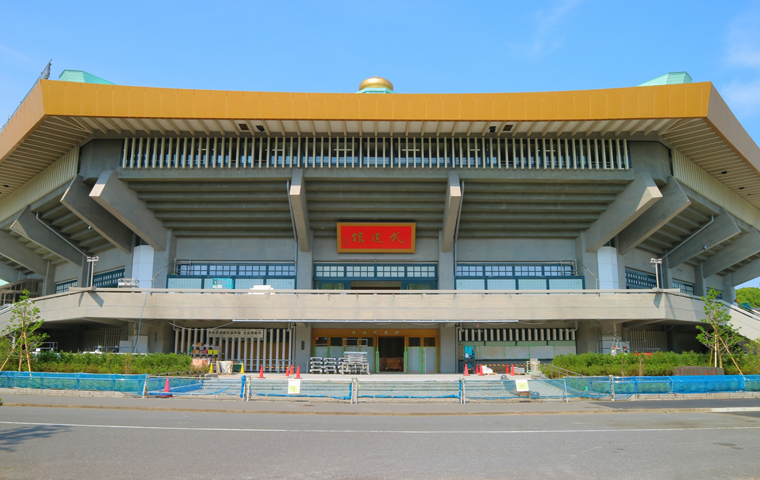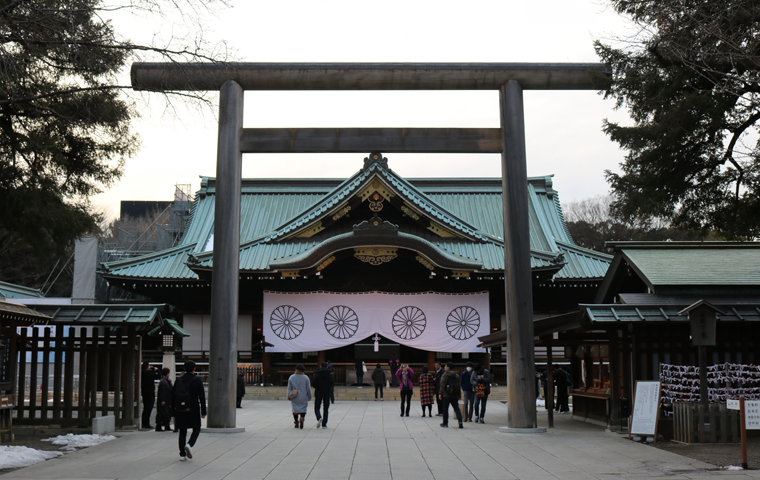80 Years Since the War’s End: A Pledge of Inheritance and a Return to “Reflection”
Related Articles
Prayer on the 80th Anniversary of the War’s End: National Memorial Service for the War Dead at the Nippon Budokan

On August 15, 2025, Japan’s summer was wrapped in deep prayer and silence. Marking 80 years since the end of World War II, the government’s National Memorial Service for the War Dead was solemnly held at Tokyo’s Nippon Budokan. This is the day to mourn some 3.1 million compatriots who died in air raids, the Battle of Okinawa, the atomic bombings of Hiroshima and Nagasaki, and on far-flung battlefields. Following an opening at 11:51 a.m., the entire nation observed a minute of silence at noon, renewing prayers for the repose of the fallen and for everlasting peace.
Their Majesties the Emperor and Empress were in attendance, along with Prime Minister Shigeru Ishiba, the Speakers of both houses of the Diet, the Chief Justice of the Supreme Court—the heads of the three branches of government—and approximately 3,830 bereaved family members from across the country. In honor of the day, flags flew at half-staff at government offices and many facilities nationwide, signaling a shared spirit of remembrance. Eighty years is more than the mere passage of time; it marks a juncture where the memory of war faces the danger of fading, and it challenges the nation to decide how to pass on the value of peace to future generations. Media outlets posed questions such as “Eighty years after the war—are we at peace now?”, prompting society at large to reflect on its path and its responsibilities for the future.
This memorial service is more than an expression of sorrow. It is a highly ritualized space that shows how the nation situates the memory of war and transmits it to later generations. From the start time to the order of floral tributes, every element follows a precisely defined program. Such meticulous design transforms the chaos of war into an ordered, national memory. Yet at the heart of this public ritual lies each bereaved family’s private grief—the unhealed loss of a father, a husband, a child. The tension where national remembrance and intimate sorrow intersect is the essence of this ceremony. It is a scene emblematic of postwar Japan, where a macro historical understanding coexists with the micro stories of individuals.
His Majesty the Emperor’s Words: The Inherited Wish for Peace and a “Deep Reflection”
After the noon moment of silence, His Majesty the Emperor delivered his remarks—reaffirming to the nation and the world the core ideals underpinning Japan’s postwar pacifism. He first offered condolences for the many lives lost in the war and to their families, stating, “We renew our deep sadness.” He noted that Japan’s peace and prosperity were built over 80 years through the people’s “unceasing efforts,” while reminding us not to forget that the path has been “fraught with hardships.”
He placed particular emphasis on the duty to pass down history: “I sincerely hope that we will continue to hand down the hardships of the war and the postwar years, join our hearts together, and go on seeking peace and the happiness of people into the future.” He also once again articulated the core phrase that has been carried forward since the Heisei era: that we “look back on the past, and, based on a deep reflection, earnestly hope that the ravages of war will never be repeated.”
The Emperor’s words function as a moral compass that transcends the politics of any given administration. Speaking as the “symbol” under Japan’s Constitution, his message avoids political intervention yet conveys the nation’s basic stance toward war at home and abroad. Notably, the expression “deep reflection” has been used consistently—even in times when politicians hesitated to employ it—serving as a “moral anchor” embodying Japan’s unwavering vow for peace beyond changes of government. It is also a powerful, sustained message of reconciliation to Asian nations that suffered under Japan’s past militarism. Amid shifting political rhetoric, the Emperor’s words operate as quiet yet weighty symbolic diplomacy, conveying the nation’s fundamental commitment to peace.
“Reflection” Etched for the First Time in 13 Years: A Historic Shift in Prime Minister Ishiba’s Address

Following the Emperor’s remarks, Prime Minister Shigeru Ishiba delivered his address—garnering great attention as a potential turning point on this 80th anniversary. After offering condolences for the more than three million fallen and vowing never to forget that today’s peace and prosperity rest upon their precious lives, he stated: “We must once again engrave deeply in our hearts the reflection and lessons of that war.”
The single word “reflection” drastically altered the tenor of the address. It was the first time in 13 years—since then-Prime Minister Yoshihiko Noda in 2012—that a prime minister used this term in the memorial address at the National Memorial Service. Since the second Abe administration, successive prime ministers had avoided the word, limiting themselves to speaking of “lessons of history.” This change was no accident. In a later press conference, Prime Minister Ishiba clarified his intent: “I believe that lessons arise upon reflection. Reflection comes first; lessons follow. Lessons do not appear out of nowhere.” In other words, a sincere reckoning with the past is what yields sound guidance for the future.
The restoration of this single term sends layered signals both domestically and internationally. At home, it marks a stance distinct from earlier conservative approaches that sought a “departure from the postwar regime” or criticized certain views as a “masochistic view of history.” Abroad—particularly to Asian neighbors—it can serve as a diplomatic message of intent for more earnest dialogue on historical issues, potentially laying groundwork for improved relations where a lack of “reflection” had long been noted. The prime minister’s address highlighted anew the political and diplomatic weight a single word can bear. It is an attempt to redefine Japan’s national posture: how we view the past is directly linked to how we build the future. Etched at the milestone of 80 years since the war, it was a profoundly symbolic moment.
Postwar-Born Now a Majority: Bereaved Families’ Vow to “Pass the Story On”
Another important aspect of this year’s memorial service is a historic shift in the composition of attending bereaved families. According to the Ministry of Health, Labour and Welfare, for the first time, those born after the war comprised a majority—53.2%—among the representatives. Moreover, attendance by spouses of the war dead—once emblematic of the generation with direct experience of the war—fell to zero. These figures make plain that the memory of the war is transitioning completely from “direct experience” to “a memory that must be passed down.”
Symbolizing this generational shift, bereaved family representative Hajime Eda (age 82) offered words filled with resolve for the future. Having lost his father to the war, he spoke not only of his personal grief but urged that “our nation—having known the hardships of the postwar years—must now appeal to the world about the futility of conflict, the difficulty of reconstruction, and the preciousness of peace.” He concluded powerfully: “We, the bereaved families, hereby renew our pledge to expand activities led by the next generation and to strive toward that end.” This signals a transformation in the role of bereaved families—from solely honoring the deceased to actively serving as storytellers to ensure that tragedy is never repeated.
The Emperor, the Prime Minister, and the bereaved family representative—though their roles differ—all invoked the phrase “pass the story on.” This convergence lays bare the essential challenge facing Japan 80 years after the war. Once firsthand witnesses are gone, the memory of war can swiftly become an abstract historical event. As the visceral sensations of pain, grief, hunger, and fear fade, the emotional foundation that has underpinned our commitment to peace may erode. In this sense, this year’s ceremony clearly shifted its center of gravity—from a place of “mourning and consolation” to a pledge of “education and transmission” for the future.
How can we keep the memory of war from weathering away and build a bulwark of peace in the hearts of the next generation? The success of this vast and difficult intergenerational project will shape Japan’s peaceful future. On the 80th anniversary of the war’s end, the nation’s prayers confront every Japanese with this solemn responsibility.



